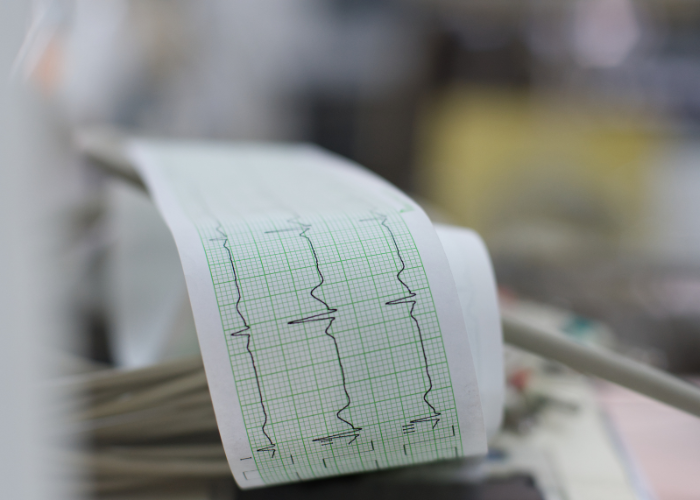Arrhythmology (Heart rhythm regulation)
What does arithmology deal with?
Arrhythmology is a specialty within cardiology that specializes in the treatment of heart rhythm disorders. We speak of a rhythm disorder (arrhythmia) if the timing or pattern of the heart’s normal stimulation changes, therefore the heartbeat turns too fast (tachycardia), too slow (bradycardia) or irregular (atrial fibrillation).

When is it recommended to visit an arrhythmology specialist?
It is advised to see the specialist with the following complaints, which may indicate arrhythmia:
- arrhythmia, strong heartbeats
- fast regular or irregular (>100/min) heartbeat
- slow heartbeat (constantly below 40-50/min)
- fatigue
- dizziness
- loss of consciousness
In case of fast heartbeat, paroxysmal supraventricular tachycardia (PSVT), atrial fibrillation is in the background, less often ventricular tachycardia. The cause of a slow heartbeat is a conduction disorder, so-called atrioventricular block.
What happens during the arithmology specialist examination?
The arrhythmia examination at the outpatient clinic does not require special preparation, the patient might already have had some cardiology examinations. In addition to physical and ultrasound examinations, we primarily use complaint-oriented diagnostics (ECG, Holter, event recorder) to confirm or rule out the connection between the sensations experienced by the patient and possible rhythm disturbances. Some of the rhythm disorders do not require treatment, but there are some that cause weakness, heart failure, or even sudden cardiac death. During the arrhythmology examination, the necessary treatment method is determined, which can be drug treatment, catheter treatment (so-called catheter ablation), or pacemaker/ICD implantation.
We also perform control examination of patients wearing a pacemaker (BIOTRONIK, Boston Scientific, Sorin)/ICD.
Electrical cardioversion
Atrial fibrillation is the most common arrhytmia. In case of atrial fibrillation, the sinoartial node, which ensures the heart’s regular rhythm, stops working, and an irregular electrical activity from the atria takes over control of the heart muscle. In addition to atrial fibrillation, the heart’s performance decreases, blood circulation deteriorates and there is a risk of blood clots forming in the heart cavities. The purpose of electrical cardioversion is to restore the normal rhythm and eliminate the arrhytmia.
At Medicover Hospital, the intervention is performed by a cardiologist (arrhythmologist) and an anesthesiologist experienced in this activity based on the recommendation of an arrhythmologist. Under short anesthesia, with continuous ECG monitoring, electric current is used to eliminate the arrhytmia. During the electric shock, the patient sleeps, feels no pain, and until they wake up, we help them breathe by administering oxygen. The patient wakes up within 5-10 minutes, then they can still feel sleepy for an hour or two, and they cannot eat or drink for an hour. After a few hours of observation, the patient can go home. On the skin of the chest, at the site of the power supply paddle, a mildly painful redness may occur, which will heal without a trace in a few days.

